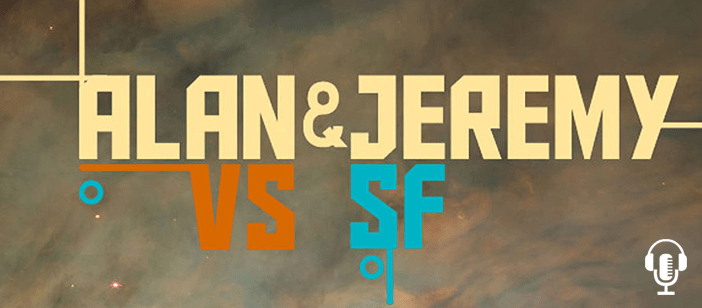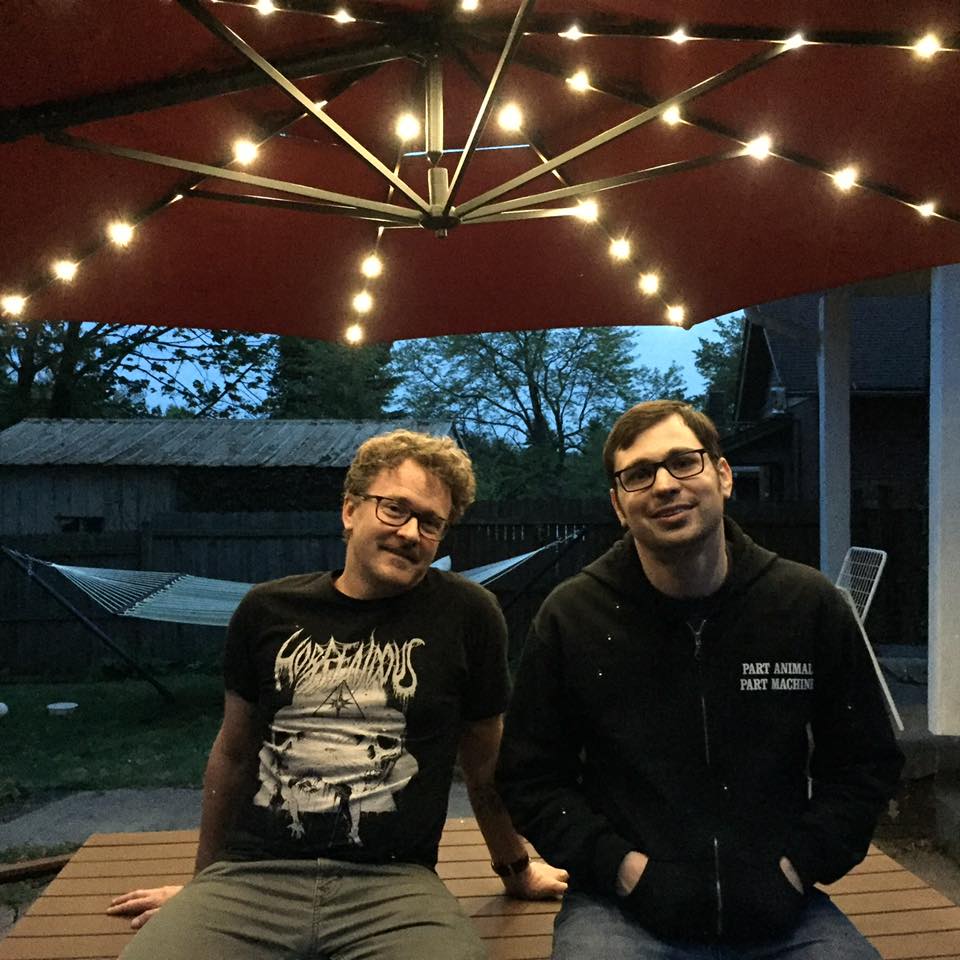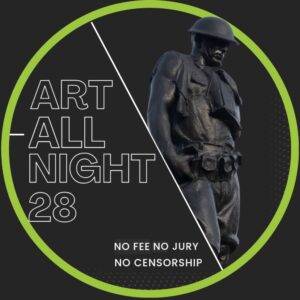Alan & Jeremy VS Science Fiction is a monthly, Pittsburgh-based Science Fiction discussion podcast where Alan and Jeremy “dive in deep and see what they can learn about themselves and the world.”
Every month, they cover a different short story with a guest — including writers and editors, academics, businessmen, scientists, musicians, and everything in between.
In addition to subscribing to Alan & Jeremy VS Science Fiction on Apple Podcasts, Stitcher, or wherever you listen to podcasts, you can follow Alan & Jeremy VS Science Fiction on Facebook and Twitter!
Don’t miss out: Pittsburgh has a stellar Science Fiction community!
From Parsec (hosts of Confluence, an annual literary conference focusing on Science Fiction, Fantasy, and Horror) to the 2018 SFWA Nebula Conference (which is in Pittsburgh this May!) to Science Fiction and Fantasy-friendly bookstores like Rickert and Beagle in Dormont, Nine Stories in Lawrenceville, and Duncan Comics, Books, and Accessories in Westview (featuring nearly 20,000 Science Fiction and Fantasy titles!); recurring events like the Steel City Speculative Series; Write or Die, a science fiction, fantasy & horror writing and critiquing group established in 1996; PLUS publications like The Arcanist and Triangulation (an annual short fiction anthology) and podcasts like Alan & Jeremy VS Science Fiction… there are a ton of ways to get your Science Fiction and Fantasy fix in the ‘burgh!
What inspired you to make a podcast about Science Fiction short stories?
When we were first considering what we wanted to do in the podcast, we noticed there weren’t many podcasts that focused specifically on short fiction. Starting in the Pulp era, as Science Fiction magazines gained popularity, short stories became a supporting pillar for science fiction. In the era of the multiple volume series, we want to remind people that short fiction remains wonderful and innovative territory for Science Fiction and Fantasy (SFF) authors. Short fiction not only acts as testing ground for new and pioneering SFF authors, but is the domain of some established authors who specialize in short fiction. Many highly influential authors fall into this category like Harlan Ellison, James Tiptree, Jr., and Ray Bradbury, for example.
Is the name of your podcast supposed to be… a little combative?
The title wasn’t intended to be combative, but I think we present a challenge to Science Fiction. As we interrogate each story, we explore a huge range of topics that may not even seem relatable to SFF. For example, we end up discussing the influence of Cyberpunk on PBS cartoons with a musician in episode 3; we discuss bodies and gender roles with a science journalist in episode 8; we discuss the nature of desire with a Buddhist priest in episode 4. You can see how far our discussions range in any given episode… so I think we take each SFF story and examine it closely and challenge it to show us more about the world around us.
How do you choose your stories?
Ultimately, we try to pick great stories that reflect the best SFF has to offer.
We want to cover the classics by well-known science fiction authors like Ray Bradbury and William Gibson because those are the stories that made us love SF in the beginning, but we also want to promote authors like Mary Robinette Kowal (whose debut novel was published in 2010) and authors who specialize in short fiction. And we want to promote diversity in SF. For example, in our 7th episode we discuss a story by an author named Zhang Ran. You’ve probably never heard of him, but he’s an award winning author in China. Similarly, in our 2nd episode we discuss a story by Blaize M. Kaye, a South African author that specializes in short fiction.
And you like to invite guests on the podcast…
We feel the added perspective of a guest helps us to interrogate the stories in a more nuanced fashion. We get fresh perspectives, as well as learn more about how short fiction is important to people of varying disciplines and experiences. We really want to hear our guests apply their ideas to fiction. We learn more about our guests that way, and we’re finding that everyone we talk to has something genuinely interesting and insightful to contribute to the conversation. The effect is such that listeners are likely to feel more like they’re eavesdropping on lively conversations amongst friends than listening to formal interviews.
Previous guests include musicians, scientists, entrepreneurs, authors, Buddhist priests, editors, artists, and lovers of genre fiction.
Are your day jobs Science Fiction adjacent?
Jeremy is a professor of Literature at the University of Pittsburgh at Johnstown, so it’s pretty easy to see how his day job influences the podcast. Jeremy brings real knowledge to the podcast. He establishes a more serious level of criticism.
Alan has been an educator for most of his career, as well. However, Alan’s experience is more varied and has led him to work as a High School English teacher and as an instructional designer in higher education and corporate learning environments. In some of these positions, Alan was often expected to work in audio/visual formats. It wasn’t a stretch for him to combine these aspects of his career and start a podcast.
What are some of your favorite places to find short Science Fiction?
There are a lot of great places you can find quality short science fiction, and innumerable anthologies come out every year… including at least ten “Best of the Year” anthologies. My favorite anthology so far this year has been Cosmic Powers edited by John Joseph Adams.
I’d also suggest reading the Tor.com novellas, as well as Lightspeed Magazine, and Clarkesworld Magazine. If you’re too busy to spend a lot of time reading, both magazines have a companion podcast, though Tor does not. All of these publishers, and the associated editors, win awards regularly in the short fiction, anthology, and magazine categories.
Is there any way for listeners to get involved?
We love listener feedback!
Our episodes are conversations with each other and with our listeners. Opinions on fiction range wildly, and we’d love to hear other people’s thoughts on what they liked or didn’t like. We’d also like to incorporate listener requests for future episodes! We encourage reviews on Apple Podcasts, or wherever you listen to us. You can also contact us via email: ajvsscifi@gmail.com and leave comments on our website: alanandjeremyvssf.libsyn.com.
You can become even more involved by supporting us on Patreon. Becoming a Patreon member allows you to access more content as well as vote on future stories, and even be on the podcast for as little as $1 a month.
For more local literary listening, check out Cover to Credits!


























